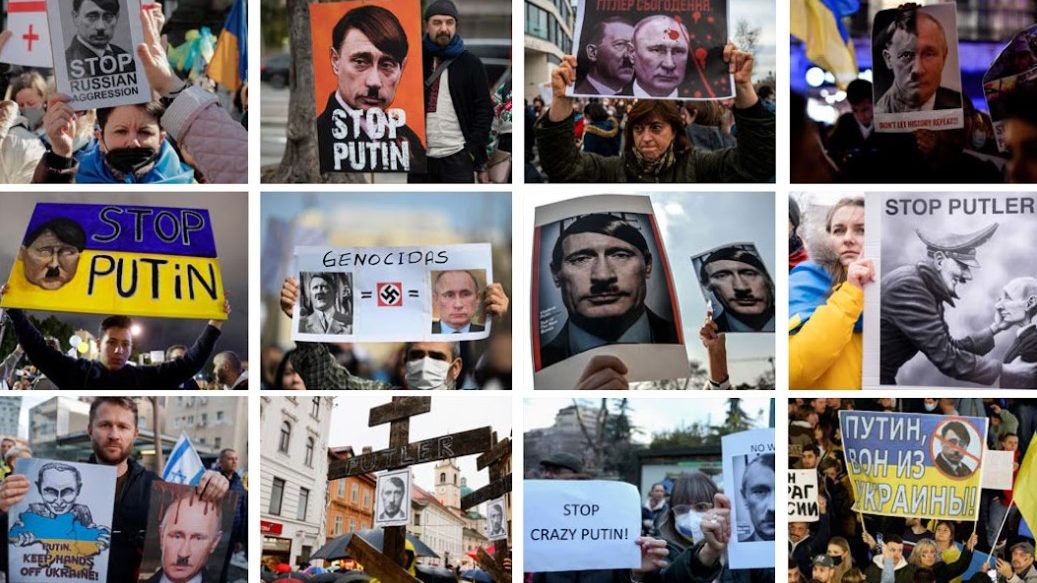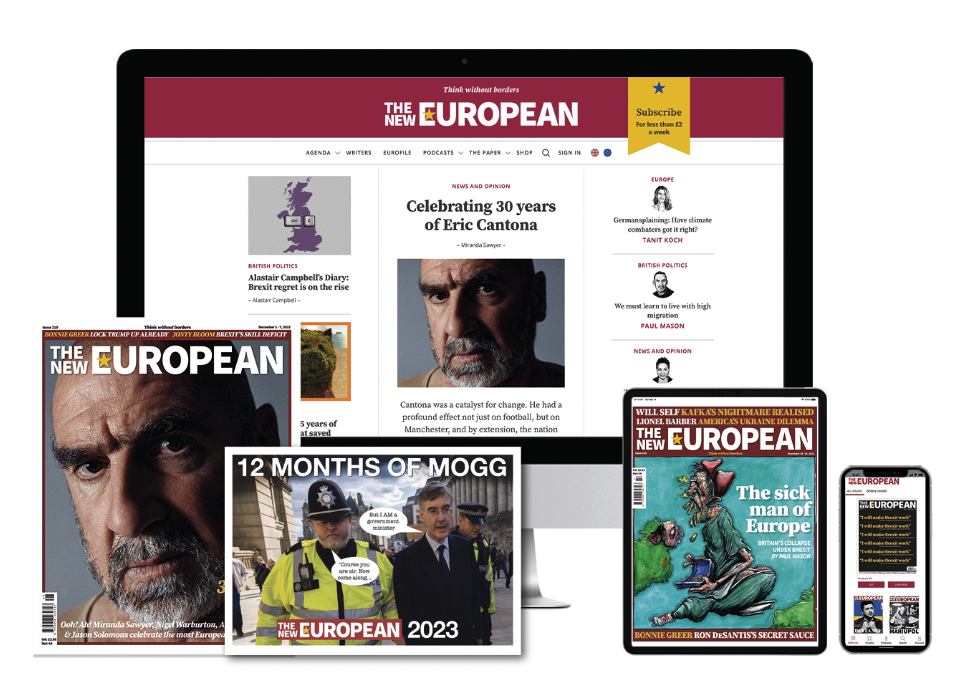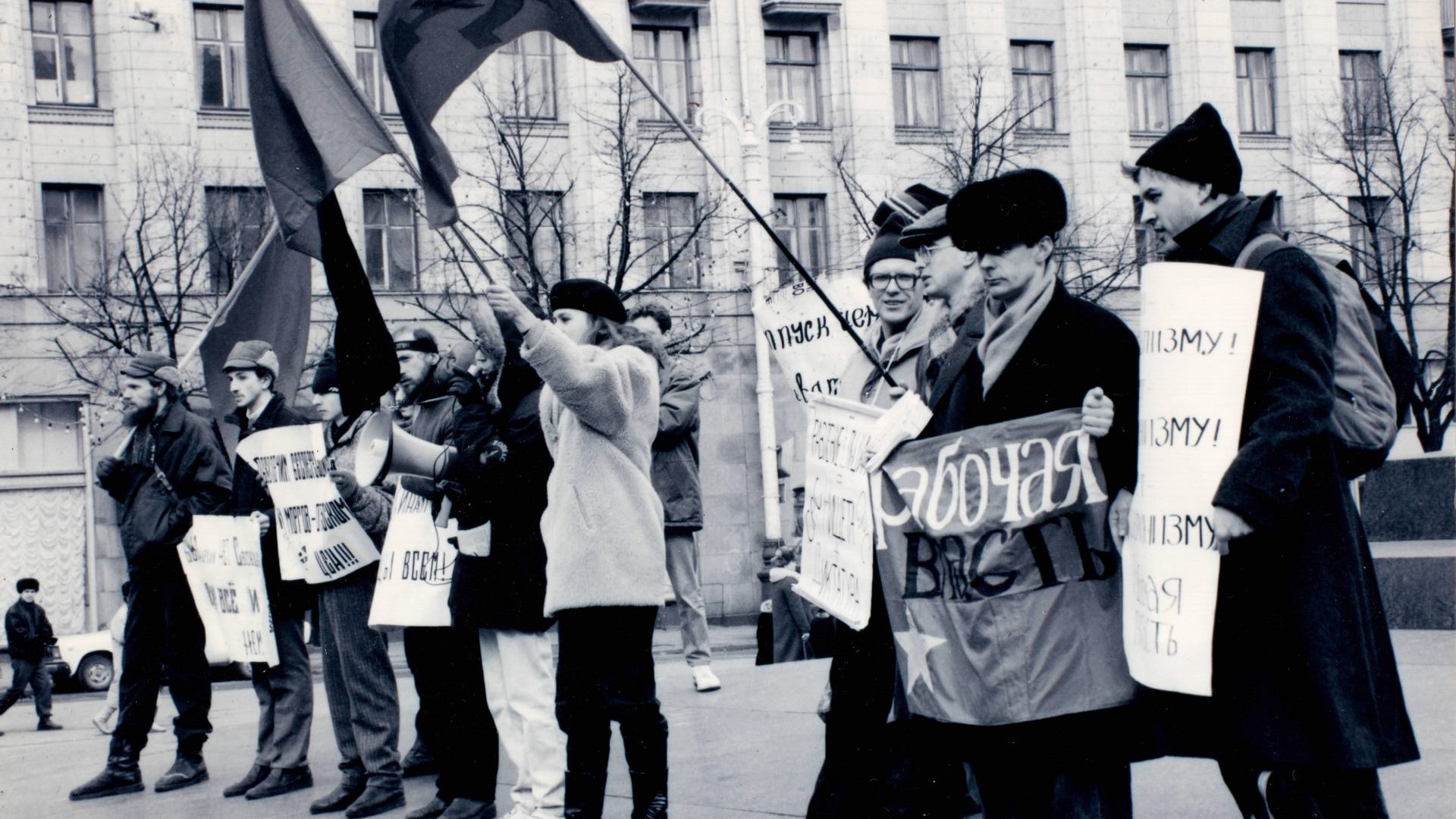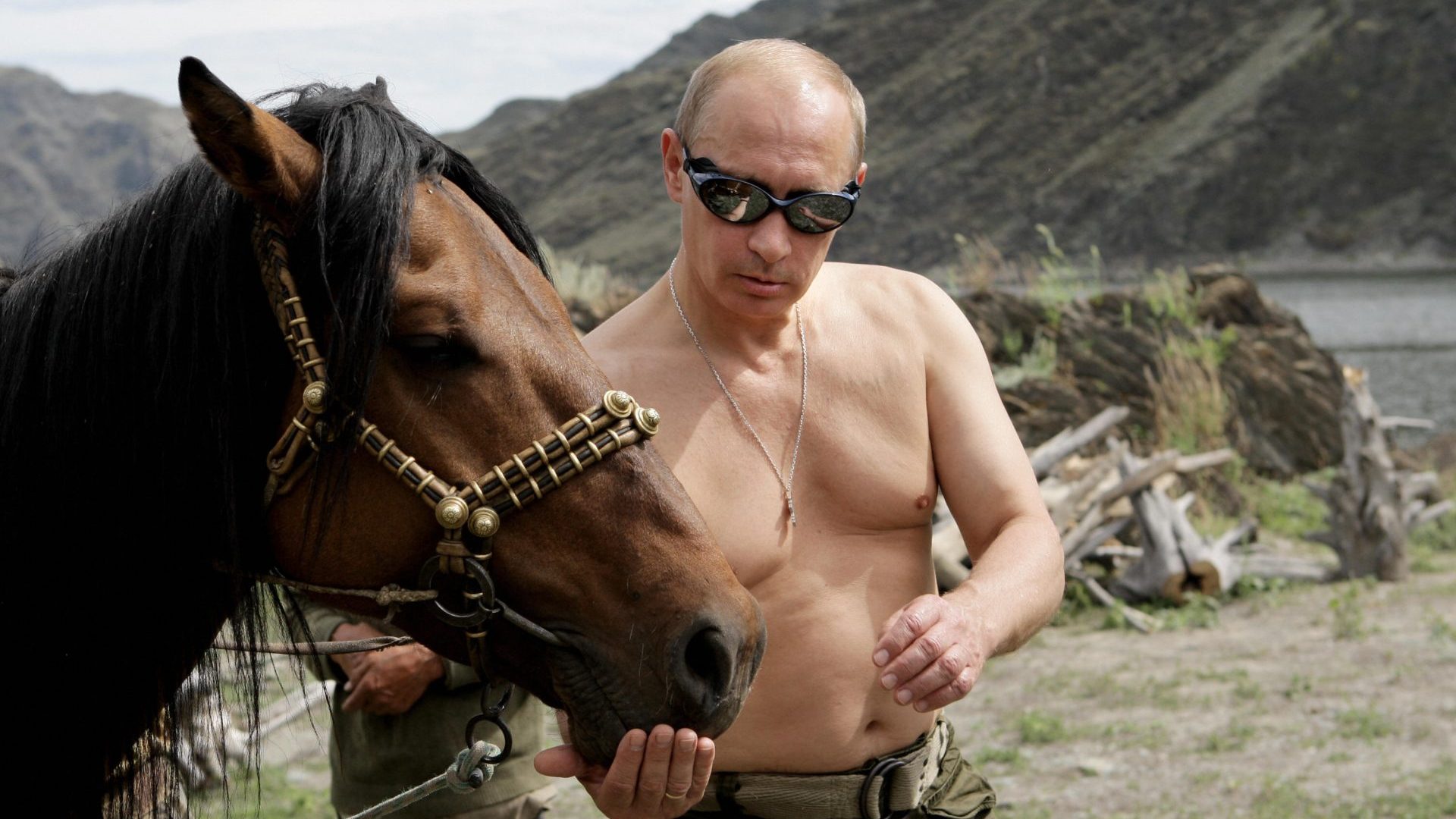War launched Vladimir Putin’s presidential career. It has served him well. Along with the rising Russian living standards that came with soaring oil prices during his first decade in power, military success has been a pillar of the popularity he has enjoyed for more than 20 years.
Now, living standards have been falling for years, and little so far suggests that Russians will come to see the war in Ukraine as a glorious episode in their country’s history. Instead, this may be the moment that marks the beginning of the end of the Putin era, a moment when the strongman of Moscow begins to closely resemble the dismissive nickname given to him by the jailed dissident Alexei Navalny: “The old man in the bunker”.
Putin’s military campaigns have got bigger and more ambitious since the second war in Chechyna, in late 1999, where his tough response to armed rebellion helped him win the presidency the following spring. I was in Grozny that day – reporting from the ruins of that city, the centre of which was flattened by long periods of relentless Russian shelling over several months. It was a victory for Putin, though – both at the ballot box, and with bombs and bullets.
More victories have followed: in Georgia, in Syria, and – in the eyes of many Russians – the crowning glory that sent Putin’s personal ratings soaring: Crimea.
As we know from Putin’s history lectures – on the Soviet role in WWII, and on the fact that “Russians, Ukrainians and Belarusians are all descendants of ancient Rus” (translation: there’s no such thing as Ukraine, the nation state) as he argued in an essay published last summer on the Kremlin website – the Russian leader is keen on the long view.
One moment in history he is yet to foresee is his own departure from office. Despite already being at the summit for 22 years, Putin has made plans to be there for much longer. A “national vote” in 2020 on constitutional reform delivered him the potential to remain president until 2036. The result was hardly in doubt. Putin has been the boss for so long that many Russians can hardly imagine anything different.
From the point of view of his desire to keep a grip on the Kremlin, that is an advantage. As Russia enters the most unpredictable period in its post-Soviet history, it is also a significant weakness. For Putin himself is among those Russians who cannot imagine anyone except Putin as leader – and that brings its own problems.
After more than two decades leading the biggest country on earth, it would be hard for anyone to keep in touch with reality. Mikhail Khodorkovsky, once Russia’s richest man, and now a bitter critic of Putin, told me when I met him in London this week: “I think that for him it was a critical mistake. A mistake based on the fact that he lives in a world of completely different ideas. This world has been created for him over 20 years by his entourage. It’s one of the reasons why leaders of countries should change.
“And this mistake will cost him very dear – unfortunately not only him, but also Ukraine, Russia, and I am very afraid that the results of this may even bring Russian statehood into question.” Navalny’s ally Leonid Volkov puts it more starkly. “Putin is insane and dangerous,” he said last week.
Building on all this is Putin’s self-imposed isolation during two years of pandemic, the most recent manifestation of which was the massive table put out for meetings with world leaders reluctant to take a Kremlin-approved PCR test, and thus share their DNA with the Russian security services.
Being in a bubble can remove a sense of perspective – especially when you set the rules. After so many years of setting the rules, Putin may just have reached the stage where he forgets what rules are – international law, what’s that? – and no one dares to remind him. In fact – judging by the bizarre curtain-raiser to the invasion of Ukraine, when Putin’s top team pledged their support for his plans in a meeting televised from the grand and intimidating surroundings of a hall in the Kremlin – they are scared to tell him anything, in case they say something he doesn’t want to hear. Yet neither Russia’s prime minister, Mikhail Mishustin, nor the Liz Truss-baiting foreign minister, Sergei Lavrov, looked particularly enthusiastic.
Even the head of the Russian security service, the hawkish secret policeman, Sergei Naryshkin, fluffed his lines like a mumbling Dickensian schoolboy terrified of the cane and received a dressing-down for it.
How long can this go on? The nervousness of the neo-tsar’s entourage in front of their leader does not necessarily mean loyalty. One day, many years from now, we may find that the eerily accurate intelligence leaked by the US came from one of those superficially subservient schoolboys who thought Putin had lost his way – and wanted the world to know in the hope that exposing the invasion plans might stop them.
Whether or not that is the case, there are those who are bold enough to say out loud that they don’t agree. On social media, Russians, some of them surprisingly high-profile – like Sofia Abramovich, daughter of the Chelsea-owning tycoon Roman, and Liza Peskova, the daughter of a Putin spokesperson – have posted messages expressing opposition to the invasion. Across the country, thousands of protestors have taken to the streets.
Their protests may so far have barely dented the security state that Putin has built. Demonstrators have been swept swiftly to the cells by a police force that Putin can still count on to keep dissent to a minimum.
The press, too, is on a pretty tight leash. As the Moscow Times reported in the early days of the invasion, Russia’s communications regulator has warned the news media they must “use only information and data from official Russian sources” – in other words, no independent accounts, and certainly no Ukrainian ones, in their reporting of the biggest military mobilisation in Europe since the second world war.
So: loyal lieutenants; loyal security services; a muzzled media; and street protests that are hardly on a scale that cannot be controlled. What might it take to end the Putin era?
The answer is this war.
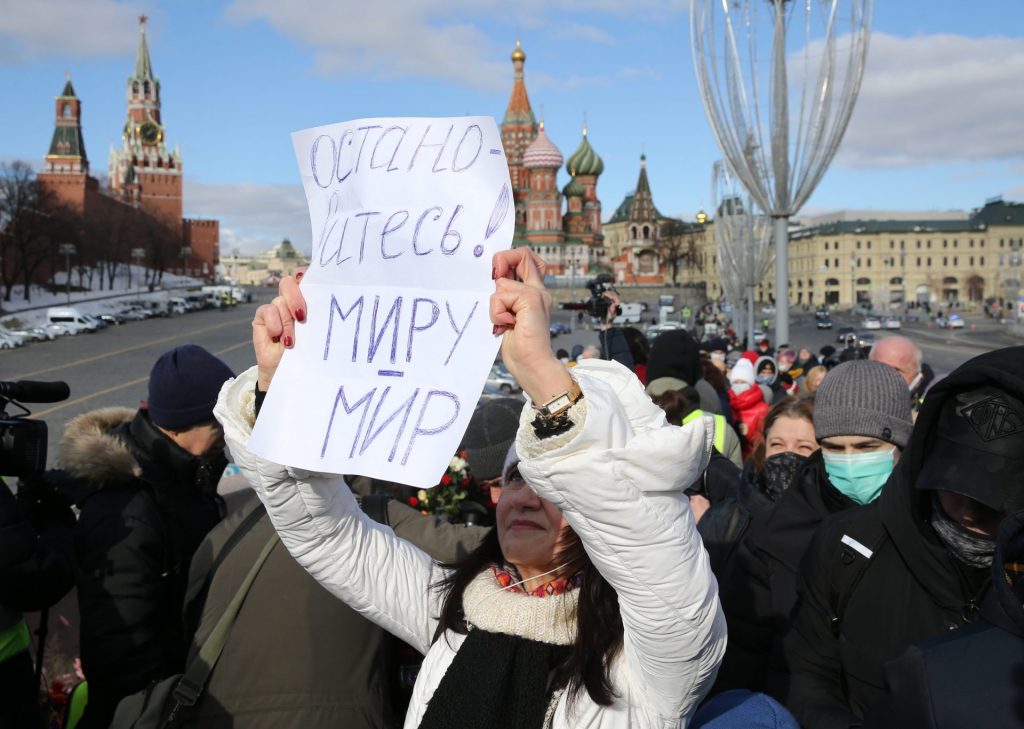
Even in a system that long ago abandoned free elections, public opinion is important. Hours after the invasion began, Putin’s spokesman, Dmitry Peskov, was telling the Tass news agency that most Russians’ support for the “military operation won’t wane”.
Putin had better hope so, because there are plenty of reasons to expect that it might well wane – and that could have very unpredictable consequences for the man who likes to think he is in control of everything, and everyone, around him.
The policies that have guaranteed his popularity since the turn of the century have run their course.
First, the rising living standards that came during Putin’s first and second terms, as oil prices soared, are a thing of the past. The sanctions that followed the annexation of Crimea, and the pandemic, put paid to them. The latest round of sanctions already look set to hit Russians’ pockets even harder as the rouble touches record lows against the dollar.
That might not have mattered so much while the conquest of Crimea gave Putin’s own personal popularity ratings such a boost – soaring close to 90% in late 2014, before the sanctions started to bite, and still above 80% in 2018. The retaking of Crimea was so popular because historically it had been a cherished part of Russia, transferred by the then Soviet leadership to Ukraine in 1954. That mattered little when both Russia and Ukraine were constituent republics. Taking it back was seen as redressing just one of the humiliations visited on Russia at the collapse of Soviet power.
The attack on Ukraine is in no way likely to have anything like the same effect on Putin’s standing in the eyes of the Russian people. Whatever his spokesman may suggest, it is reasonable to assume that for every Russian bold enough to protest in a police state, there are many more that think the same way.
And while there will be some who buy the Kremlin’s increasingly absurd Orwellian propaganda that the invasion is about “demilitarising” and “de-Nazifying” Ukraine, many others will be horrified by the bloodshed. Ukrainian surnames are common among the Russian population, a reflection of the family ties that have come with centuries of shared history.
Putin’s great skill as a politician has been to understand his people and to give them what they wanted: stability and prosperity in the 2000s after the chaos that followed the collapse of communism; then a newly assertive standing on the world stage, achieved by force of arms if necessary.
Now his instinct seems to have deserted him – and the popularity it has for so long delivered him may soon start to vanish, too.
Putin still has much on his side. Russia’s foreign exchange and gold reserves – perhaps deliberately built up in preparation – are worth around £450bn. His immediate entourage may privately question the war, but may not have the courage to make a move – hoping, somehow, that this will not go too far.
Sanctions placed on individuals may not sting too much. They will have been expecting them, and will have prepared accordingly. Being placed on the list can also be spun as a patriotic honour.
For now, the military and most of the media – with the courageous exception of news organisations such as Novaya Gazeta, whose editor, Dmitry Muratov, won last year’s Nobel Peace prize for his contribution to freedom of expression – are safely loyal.
Yet you do not have to go too far back in Putin’s beloved Russian history to find examples of revolutionary change where military catastrophes have contributed to the fall of regimes: the Soviet campaign in Afghanistan; the first world war and the end of the Russian empire.
Foreign Office minister James Cleverly’s call for “the military leaders around Vladimir Putin… to stop this” might be a bit of thinking just as wishful as some of his pronouncements about the benefits of Brexit, yet perhaps there are some signs of hope.
The invasion of Ukraine did not start as intended. It seems Putin under-estimated the scale of resistance the Russian army was likely to face – and may yet be seen to have overestimated conscript soldiers’ will to fight “fellow descendants of ancient Rus”.
In a BBC interview on February 27, General David Petraeus – veteran of fighting insurgencies against occupying forces in Afghanistan and Iraq – described the prospect of a hostile Ukrainian population with the will to fight as “Putin’s worse nightmare”.
If Putin has miscalculated, this war could be the defining – and concluding – act of his political career.
James Rodgers is an associate professor in international journalism at London’s City University. A former BBC foreign correspondent, his books include Assignment Moscow: Reporting on Russia From Lenin to Putin

